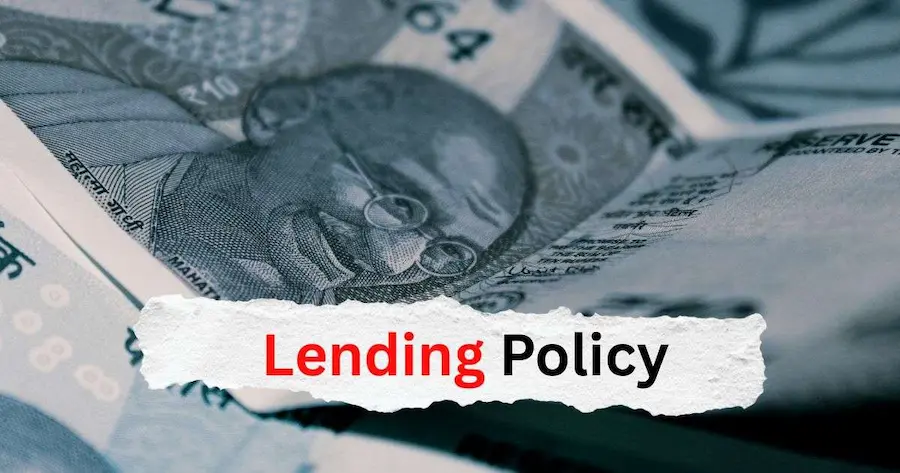India’s loan policies are evolving to ensure fairness, transparency, and borrower safety, and a significant aspect of this shift is the stringent focus on preventing and addressing bank harassment. With new RBI guidelines covering ethical recovery practices and robust grievance redressal mechanisms, borrowers now have more power than ever to protect themselves from undue pressure and intimidation. This blog breaks down the latest updates and what they mean for you if you’re facing bank harassment.
In recent years, the Reserve Bank of India (RBI) has taken major steps to promote fair lending practices, aiming to protect borrowers from mis-selling, overcharging, and crucially, harassment during the loan recovery process. With India’s growing dependence on credit, especially through digital lenders, the demand for transparent, ethical, and borrower-friendly loan norms has never been more important.
Here’s what you need to know about the latest policy updates and how they impact you, particularly in cases of bank harassment:
1. RBI’s Focus on Ethical Recovery Practices: Your Shield Against Harassment
A major part of fair lending is ensuring borrowers are not subjected to harassment, even when facing repayment challenges. The RBI now mandates that all lenders—banks, NBFCs, and their appointed recovery agents—must adhere to strict ethical recovery practices as per RBI’s Fair Practices Code. This means:
- No abusive or threatening language: Recovery agents are strictly prohibited from using offensive, intimidating, or abusive language, whether verbally or in writing.
- Time restrictions for calls/visits: Calls and visits from recovery agents are restricted to 7 AM to 7 PM. Contacting borrowers outside these hours is considered harassment and a violation.
- No public shaming tactics: Lenders or agents cannot resort to tactics that publicly shame you, such as contacting your employer, neighbors, or relatives without your explicit consent (unless it’s to track an untraceable borrower and in a dignified manner). They cannot disclose your personal information or debt details to unauthorized third parties.
- Identification and authorization: Recovery agents must clearly identify themselves and carry proper identification documents issued by the bank or financial institution they represent. They must also have an authorization letter for any home visits.
- Respect for privacy and dignity: All interactions must be conducted in a polite, civil, and professional manner, respecting your privacy and dignity. They cannot make calls or visits during inappropriate occasions like a bereavement in the family.
- No misleading representations: Agents cannot falsely represent themselves as government officials, police, or judicial authorities.
The bank is ultimately responsible for the conduct of its recovery agents. If you experience any of these violations, you have strong grounds for complaint.
2. Digital Loan Regulations Strengthened to Prevent Digital Harassment
Following numerous complaints of fraud, harassment, and data misuse by unregulated digital lenders, the RBI has enforced new guidelines that indirectly strengthen protection against digital harassment:
- Only RBI-registered entities or those partnered with regulated lenders can provide digital loans. This ensures accountability, as regulated entities are bound by the Fair Practices Code, reducing the prevalence of rogue apps engaging in harassment.
- Apps must disclose their partner NBFC or bank, and avoid misrepresenting themselves as authorised lenders. This transparency allows you to identify the responsible entity and hold them accountable for any harassment.
This ensures accountability and protects borrowers from shady apps and their unethical recovery practices.
3. Enhanced Grievance Redressal: Your Path to Justice
RBI’s Integrated Ombudsman Scheme now covers complaints related to loans from banks, NBFCs, and payment platforms. This unified, cost-free platform makes filing complaints easier and ensures faster resolution, especially in cases of harassment.
How to Lodge a Complaint Against Bank Harassment:
- First, complain to the bank/NBFC directly: Most banks have a dedicated grievance redressal mechanism. Lodge a formal complaint with their customer service or grievance redressal officer, detailing the harassment with dates, times, names (if known), and specific incidents. Keep a record of your complaint (reference number, email copy).
- Wait for 30 days: The bank is obligated to respond to your complaint within 30 days.
- If unsatisfied or no response: If you don’t receive a satisfactory response within 30 days, or if your complaint is rejected, you can escalate the matter to the RBI Ombudsman.
- Online: File a complaint through the RBI’s Complaint Management System (CMS) portal: https://cms.rbi.org.in
- Email: You can also send your complaint to CRPC@rbi.org.in.
- Offline: Send a physical complaint to the Centralised Receipt and Processing Centre (CRPC), Reserve Bank of India, 4th Floor, Sector 17, Chandigarh – 160017.
- Toll-Free Helpline: You can call the RBI’s contact center at 14448 (9:30 AM to 5:15 PM) for guidance.
What You Should Document:
- Call recordings: If possible, record phone calls with recovery agents (inform them if required by law in your jurisdiction).
- Screenshots: Take screenshots of abusive messages, WhatsApp chats, or social media posts.
- Emails/Letters: Keep copies of all communication, including official notices, emails, and letters exchanged.
- Dates, times, and names: Note down the exact dates and times of calls or visits, and the names of the agents if they identify themselves.
- Witnesses: If harassment occurs in front of others, note down potential witnesses.
Beyond RBI Complaint – Other Legal Recourse:
- Police Complaint: If the harassment involves criminal intimidation (Section 503 IPC), threats, physical harm, or trespass, you can file a police complaint (FIR).
- Consumer Court: You can approach the Consumer Court for “deficiency in service” or “unfair trade practices,” and seek compensation for mental agony and harassment.
- Civil Suit: For defamation, damages, or violation of privacy, you can file a civil suit.
- Legal Notice: Sometimes, a legal notice from an advocate can be effective in making the agents back off.
Conclusion
India’s updated lending policies reflect a much-needed shift towards fairness, clarity, and borrower dignity. The stringent rules against bank harassment are a crucial component of these reforms. Whether you’re dealing with a bank, NBFC, or a digital loan app, these new standards give you the power to question, understand, and most importantly, fight back against unethical and harassing practices. Knowing your rights and the avenues for redressal is your strongest defense. Fair lending is not just policy—it’s your right, and freedom from harassment is a fundamental part of it.



